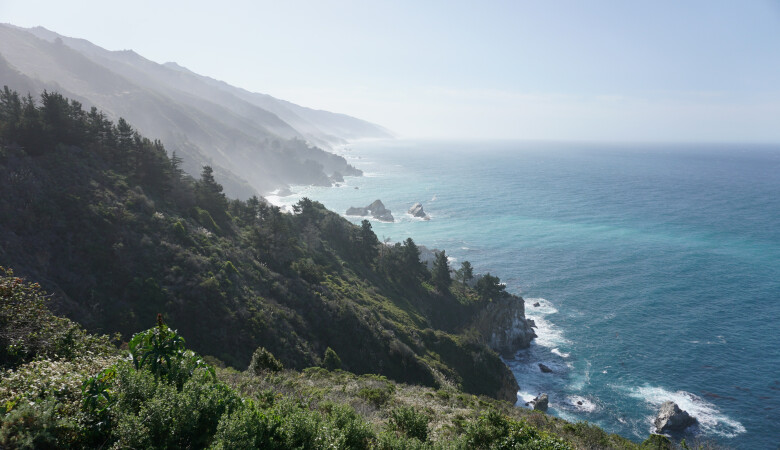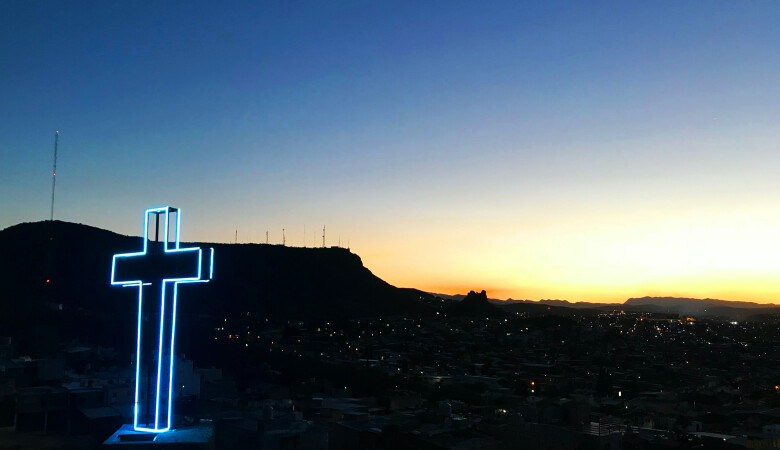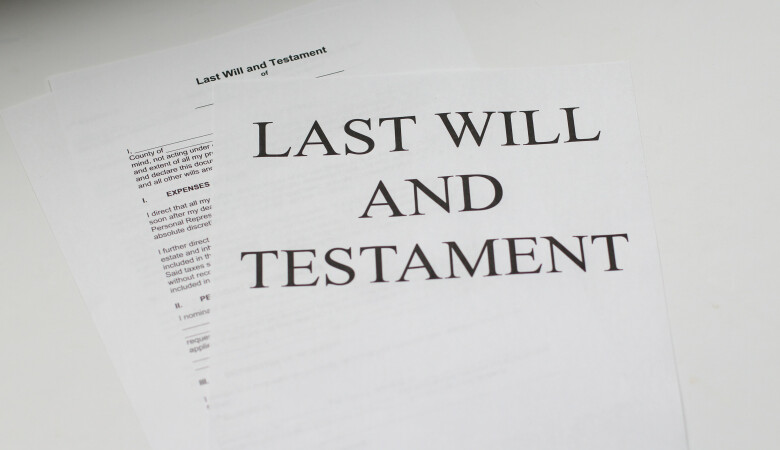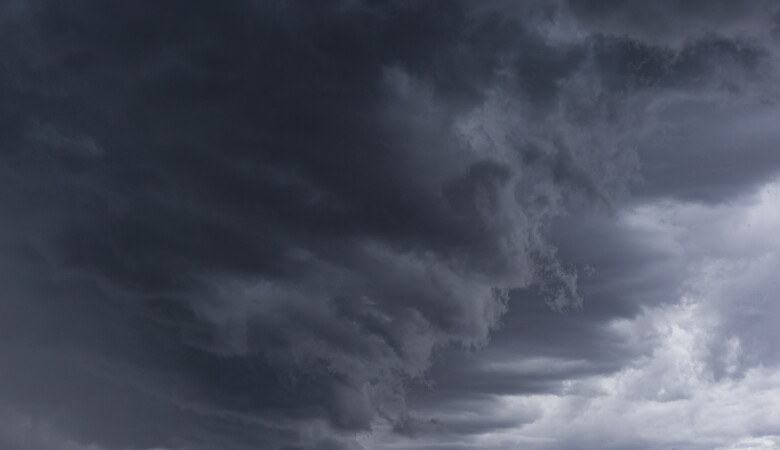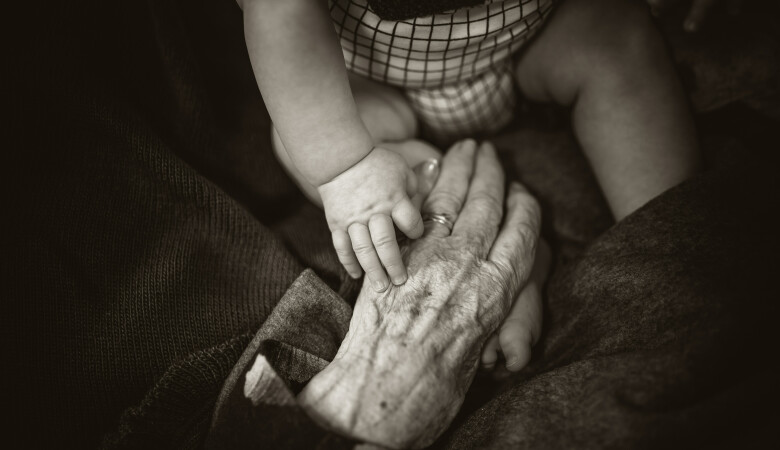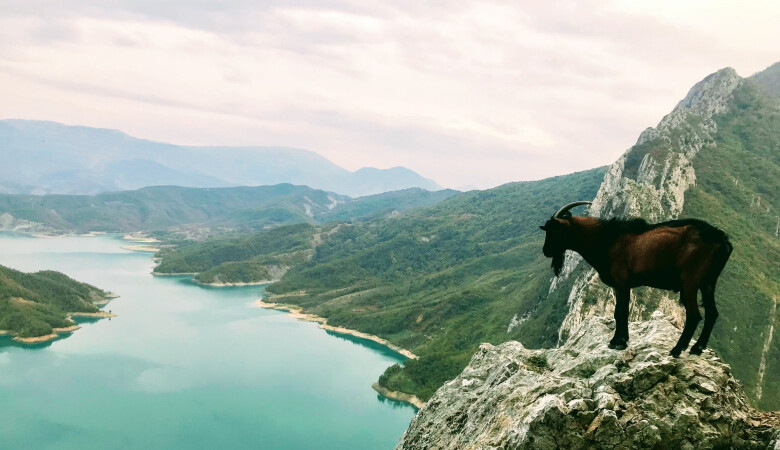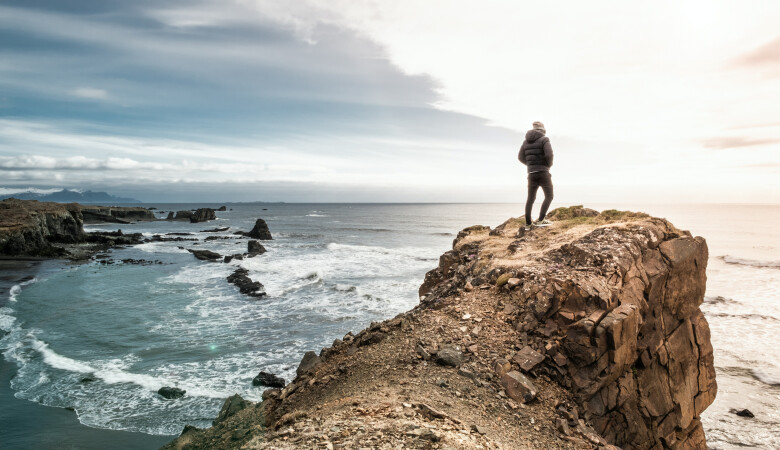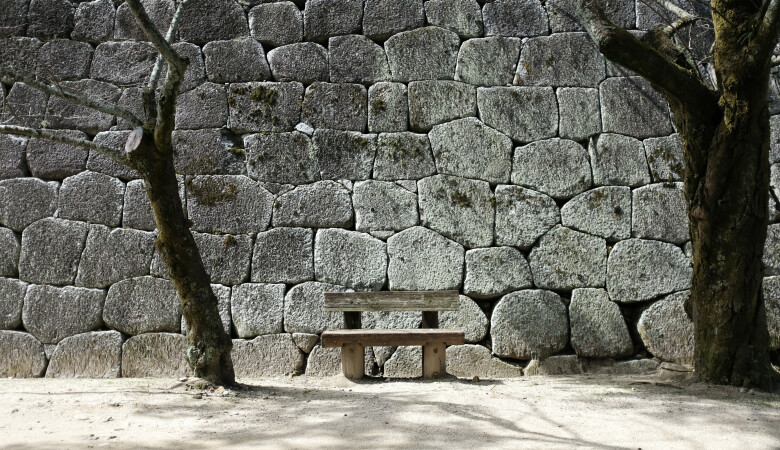The Faith of Moses in the Passover and the Red Sea Crossing (Hebrews Sermon 57 of 74)
February 19, 2012 | Andy Davis
Hebrews 11:28-29
Faith, Providence and Sovereignty of God
Two Spectacular Moments
As we come to Hebrews 11:28-29, we come to two of the most spectacular moments in Old Testament history, probably the two most significant moments in the history of the nation of Israel. Two separate nights, amazing that they were both nights, the night of the Passover and the night of the Red Sea crossing. And these events shaped the history of Israel, they shaped the identity of the nation. And as we're in Hebrews 11, we're in the middle of the faith chapter, and we're looking at all of these heroes, these great men and women of the faith, and we're seeing in their lives the actions, the activities, the results, the fruit of faith. And the author means to work in us, by this historical survey, the same kind of faith that these heroes of the faith displayed in their lives.
And so we're not just looking at the night of the Passover just as a historical event, but we're looking at it specifically that we, as believers in Christ, after the coming of Christ, after His death, His resurrection, looking back on what happened the night of the Passover, may be strengthened in our faith and love Christ more and feel more powerfully the value and the worth of the blood shed for us, and that we might be strengthened by that and see the deliverance that Jesus wrought for us in Christ.
And the same thing, dear friends, with the Red Sea crossing, that we would look back not just at a spectacular miracle, what I would have to say is the most visually spectacular miracle in all of the Bible, not the most significant, but just the most spectacular, an awesome display of the power of God. But then we will not just stop there at the spectacle of it and just the drama of the Red Sea crossing, but that we would look at it through the porthole that the author wants us to do through Moses's faith and the faith of the people as they cross the Red Sea and the dry land, that our own faith may be strengthened and that we may see the deliverance wrought for us by Jesus Christ, and see, just as we do in the Passover lamb, we see also in the Red Sea crossing, we see Jesus Christ. I think that's what the author means for us to do.
And so right in the middle of a section which we're contemplating Moses. By faith Moses, by faith Moses, etcetera. We saw in verse 24 that, by faith Moses, turned his back on a life of comfort and ease, a life of pleasure and power as a son of Pharaoh's daughter. He turned his back on that by faith, and he chose by faith instead to be mistreated with the people of God, to embrace a life of suffering, not a life of sinful pleasure. He understood that the sinful pleasures of Egypt were temporary and fleeting, but the treasures of Christ were eternal, are eternal.
I. By Faith Moses Looked Ahead to Christ (vs. 26)
And so as we saw last week, in Verse 26 that by faith we saw Moses looking ahead to Christ. Faith essentially always looking forward, looking ahead. And so are we. We are more than merely optimistic. We are forward-looking by faith. The future is unspeakably bright. And we are going to a glorious place, the new heavens and the new earth, and we're looking forward to Christ. When we won't need faith anymore, when we will see Him in His glory seated on His glorious throne, when we will see Him in the clouds and He will come back, and all the nations will be gathered before Him and He will sit on His throne in heavenly glory, we, like Moses, by faith, looking ahead to Christ. Moses did it then, we do it now.
Verse 26, "He regarded disgrace for the sake of Christ as of greater value than the treasures of Egypt." And so he's looking ahead, at that point looking ahead to Christ. We made the point that all of these Hebrews, all of these heroes of the Old Testament were justified by faith in Christ. Abel was justified by faith in Christ, and so was Enoch, and so was Noah, and Abraham, and Isaac, and Jacob, and all of these great figures that were tracing out their history, all of them justified by faith in Christ, the Christ who was promised, the Christ who hadn't come yet, they were looking forward to Christ. So, it's not an accident or it's a mere throwaway this word "Christ" in Verse 26. Moses, by faith, looking ahead to Christ.
II. By Faith Moses Looked Ahead to His Reward (vs. 26)
And we saw also in Verse 26 that, by faith Moses "was looking forward to his reward." He was looking ahead to his reward. And we saw the issue of rewards coming again, how we, by faith, must yearn for those rewards. "Without faith, it's impossible to please Him," Verse 6, "because anyone who comes to Him must believe that He exists and that He rewards those who diligently seek Him." And so he was looking ahead to his reward.
III. By Faith Moses Feared the Invisible God More Than Visible Pharaoh (vs. 27)
And then in verse 27, we saw that, by faith Moses feared the invisible God, more than visible Pharaoh. "By faith he left Egypt, not fearing the king's anger." He persevered... Moses "persevered because he saw Him who is invisible." We discussed that Moses left Egypt twice, but these words, I think, referred to the Exodus, the time of the second leaving, not the first.
He fled for his life after he murdered the Egyptian slave driver. He was afraid at that point. Clearly the text in Exodus 2 tells us he was afraid of arrest, he was afraid of Pharaoh, and he ran. But when he comes back, filled with the Spirit of God, he confronts Pharaoh very boldly and directly in an ever-escalating contest of wills, a battle of wills. And it's not between Pharaoh and Moses, no, not at all. It's between Pharaoh and God, and no one has a stronger will than God. Moses, the mediator, he was the intermediary, he was the messenger, the prophet, speaking God's words. And you can see the kind of faith it would take to go out day after day, and confront this wicked man, this tyrant, the most powerful man on earth, and not fear his anger because instead you fear God more, and you love God more, and you want to please God more. And he persevered because he saw Him who's invisible.
Realize always, the author is thinking about the audience he's writing to, these first century Jews, who are persecuted, they're being oppressed, they're losing their property, their possessions, their freedoms. They hadn't resisted to the point of shedding blood, we'll talk about that in the next chapter, but they were under a hard time. And so he's throwing them some extra phrases in here to help them. And they weren't afraid of... Moses wasn't afraid of the king's anger. He didn't fear human anger or reprisals. Why? Because he could see the invisible God by faith, as if he could see Him. And so he deals with them in an ever-escalating way, to the point where Pharaoh cannot bear to look on Moses any longer. "Get out of my sight," he says. "The day you see my face you will die." Moses said, "Just as you say, I will never appear before you again." And that was right before that final judgment on Egypt, at that point, the plague on the firstborn. Moses's final act of courage directly facing Pharaoh's rage is in the Red Sea crossing, we'll get to that presently.
IV. By Faith Moses Kept the Passover (vs. 28)
But next verse, verse 28, "By faith Moses kept the Passover and the sprinkling of the blood so that the destroyer of the firstborn would not touch the firstborn of Israel." Now, before Moses even confronted Pharaoh, before he even began this whole thing, God told Moses what he would do. And He told him to tell Pharaoh what he would do. This is back in Exodus 4:22-23, "Then say to Pharaoh, 'This is what the LORD says: Israel is my firstborn son, and I told you, "Let my son go, so he may worship me." But you refused to let him go; so I will kill your firstborn son.'" Tell that to Pharaoh. This is before any of the plagues had even started. God willed all 10 of the plagues, He hardened Pharaoh's heart to be sure he got all 10 plagues. It was God's will. And so we come to the 10th plague, the deadly and the dreadful plague on the firstborn, and what a terrifying night that was. What a terrifying night.
And through Moses, God made plain what it was He was going to do. Exodus 11, "This is what the Lord says, 'About midnight, I will go throughout Egypt, and every firstborn son in Egypt will die, from the firstborn son of Pharaoh, who sits on the throne, to the firstborn son of the slave girl who is at her hand mill, and all the firstborn of the cattle as well, there will be loud wailing throughout Egypt, worse than there has ever been or ever will be again. But among the Israelites, not a dog will bark at any man or animal. Then you will know that the Lord makes a distinction between Egypt and Israel.'" This is the sovereign electing love of God. Do not imagine for a moment that the Egyptians were any worse sinners than the Jews were. Jesus made this very plain.
When Pilate killed some Galileans while they were offering a sacrifice, and everyone assumed it's because they were worse sinners than the ones that survived, he said that was not so. And when a tower fell and some people died, Jesus said, them to not assume that the survivors were any more righteous than those that died. And he said, "unless you repent, you will all likewise perish." Frankly, the plague on the firstborn was a mercy to Egypt, because the wages of sin is death and all of them deserved to die. But it wasn't just the Egyptians that all deserved to die, it was the Jews as well. They all deserved to die. "All have sinned and fall short of the glory of God." We are all under the judgment of God, all of us under the death penalty.
The Shedding and Application of Blood
And the only remedy, therefore, for Israel would be the shedding and the application of the blood of the lamb. That was the only way they could be delivered from this plague. And so in Exodus 12, "Tell the whole community of Israel that on the 10th day of this month, each man is to take a lamb for his family, one for each household. If any household is too small for a whole lamb, they must share one with their nearest neighbor, having taken into account the number of people there are. You are to determine the amount of lamb needed in accordance with what each person will eat. The animals you choose must be year-old males, without defect, and you may take them from the sheep or the goats. Take care of them until the 14th day of the month, when all the people of the community of Israel must slaughter them at twilight. Then they are to take some of the blood and apply it on the sides and tops of the door frames of the houses where they eat the lambs." This is the clear command given to Israel through Moses.
Now, what the author to Hebrews is telling us, it was only by faith that they kept the Passover. It's only by faith that they killed the lamb and applied the blood. By faith Moses killed the lamb, trusting in God that it would be effective. It was by faith that Moses applied the blood on the door post, trusting in God that it would be effective. Even before that happened, it was by faith that Moses feared the coming wrath, which was invisible. It was just threatened, just words. "On the same night I will pass through Egypt and strike down very firstborn, both men and animals, and I will bring judgement on all the gods of Egypt. I am the Lord." It's just words, right? It's just words. No. No. Who spoke those words? This was Almighty God. This is God who created heaven and earth by the word of His power. He doesn't speak in idle word. These are not idle words for you. These words are your life, and by these words, you will live. And so, by faith, Moses feared the coming wrath. He took it seriously, the wrath to come.
Hebrews 11:1, "Faith is the assurance of things hoped for," but it's also "the conviction of things not seen." Hebrews 11:7, "By faith Noah, when warned about things not yet seen, in holy fear built an ark to save his family." Same thing happened the night of the Passover. Moses was filled with a holy fear, and so were the people. And it was by faith that they feared the coming wrath. What about you? Do you think there's a wrath to come? The secular world that we live in denies it. There's no evidence of it. 2 Peter says, that, in the final days, scoffers will come, scoffing and saying, "Where is this coming He promised?" Everything, as it always has been, always will be, goes on since the days of our fathers. It's always been the same, and I don't see any evidence of any seals or trumpets or bulls or any kind of judgments coming. There is no wrath coming on us. It's just life.
Is that what you think? Do you fear the coming wrath? Are you fleeing the wrath to come? John the Baptist said to the enemies of God, "You brood of vipers, who warned you to flee from the coming wrath?" By faith, Moses fled the coming wrath. It was by faith. Without that faith, he wouldn't have slaughtered the Passover lamb. Without that faith, he wouldn't have applied the blood. And so the point is that it's only by faith you see the danger.
And secondly, it's only by faith you see the remedy. How could the shedding of the blood of the lamb protect us from the coming wrath? By faith, the same faith that enabled Moses to fear the coming wrath, enabled him to trust in the promise of God, that if they kill that lamb and apply the blood, they would be delivered. That the blood would be effective. And so it was by faith that he kept the Passover and the shedding of the blood of the lamb. That was the only reason he did it.
And so it says in Exodus 12, in Verse 13, "The blood will be a sign for you on the houses where you are, and when I see the blood, I will pass over you. And no destructive play will touch you when I strike Egypt." And Exodus 12:23, "When the Lord goes through the land to strike down the Egyptians, he will see the blood on the top and the sides of the door frame, and will pass over that doorway, and He will not permit the destroyer to enter your houses and to strike you down."
Moses, Aaron, and the Israelites Obeyed by Faith, and Were Saved
So, God said very plainly it is the blood that would deliver them. He was very plain about this. By faith then, Moses and Israel obeyed these instructions and they were saved, they were delivered that very night.
Exodus 12:28, "The Israelites did just what the Lord commanded Moses and Aaron." They obeyed by faith. "And at midnight, the Lord struck down all the firstborn in Egypt. From the first born of Pharaoh, who sat on the throne, to the firstborn of the prisoner who was in the dungeon, and the firstborn of all the livestock as well. Pharaoh, and all his officials and all the Egyptians, got up during the night, and there was a loud wailing in Egypt, for there was not a house without someone dead."
It happened just as God said it would. Just as God said it would, it happened. It was by faith that Moses knew that the shed and applied blood provided the only safe haven of refuge from the wrath of God. Take a bunch of hyssop, dip it into the blood of the lamb and the basin, and put some of the blood on the top and both sides of the door frame. And not one of you shall go out of the door of his house until morning. That's good advice, brothers and sisters. Stay inside the house. The implication is this is the place of refuge, this is the safe place. Just like the ark, this is the only safe place. Stay inside here under the blood. Here, you will be delivered. If you go out in the streets, you will die and your judgement will be on your own head.
Ultimately, by faith, we would have to say, in the same language that we've just learned to use, it was by faith that Moses obeyed the Gospel of Jesus Christ. Amen? Do you not see it? It's so plain. The Scripture makes it plain. We know what to think. John the Baptist came as the precursor of Jesus. The first day he sees Jesus beginning his public ministry, he points to him so all Israel will know who He is, he points to Him and says, "Behold the Lamb of God who takes away the sins of the world."
Dear friends, I was raised in the Roman Catholic church. I was an altar boy. I heard those words every single week, they meant nothing to me. I didn't know what the words meant, "Behold the Lamb of God who takes away the sins of the world." I needed an education. And I got an education in life, and through Scripture, and by an evangelist, who taught me who the lamb was, who taught me what it means, "Behold the lamb of God."
How can we behold Him who is invisible? The answer is clear. Only by faith. Only by faith in Jesus can you obey what John the Baptist tells you to do, "Behold the Lamb of God who takes away the sins of the world." And only by faith in Jesus will your sins be removed from you, because a far greater judgment is coming than they felt that night, far greater. You could think, how could it be greater? I've never heard of anything like that. Every single house in the whole nation someone dead? That's never happened since then. Not even in the days of the Black Death did that happen every, single house had a dead person. Oh, far greater than that.
And far greater than physical death we're talking, we're talking about the second death, we're talking about eternal torments in hell, we're talking about a deliverance from that. Does that mean nothing to you? Do you not fear the wrath to come? Far greater than any physical death, those Egyptians, they just dropped dead, they stopped living physically. Oh, but there's a far greater judgment, and that's a judgment of hell. And Jesus came to shed His blood to deliver you and me from the wrath of God and from hell. And so it says in Romans 3, "All have sinned, all have sinned and fall short of the glory of God, and are justified freely by His grace through the redemption that came by Christ Jesus. God presented Him as a propitiation through faith in His blood." There is the word "blood" again. You can't avoid the word. It is by the blood of Jesus that propitiation happens.
Now, we're told in preaching classes, "Don't preach propitiation. No one knows what propitiation is." Well, that's why we should preach it, because no one knows what it is. I wasn't born knowing propitiation. What is propitiation? It's a fancy word for the removal of the wrath of God by the giving of a sacrifice. That's what it means. And by the giving of a sacrifice, dead, the blood shed out, the wrath of God is removed. There is none, and you are free at last from the wrath of God. That's what happened when Jesus shed his blood. And by faith in the blood, the wrath of God will be removed from you as well. Oh, how sweet is that good news? Is that not the best news you've ever heard? And sinner or saint, I don't care if you heard it 74 years ago, it's still the best news you've ever heard. Amen? The best news you've ever heard. Blood propitiation, the sacrifice of Jesus. Jesus died under the wrath of God to take it away from you. But I say to you, you will only see it by faith. That's the whole point here. I'm just giving you words. But the words are true, because they're God's Words, this is the Gospel, and it is so good. Good news that sinners like us can be delivered from the wrath to come.
V. By Moses’ Faith the People Passed Through the Red Sea (vs. 28)
By faith also, the Scripture tells us, the people passed through the Red Sea on dry ground. But when the Egyptians tried to do so, they were drowned. This is the final act of the drama with Pharaoh. The 10th plague, it had its deadly effect. Pharaoh drove the people out. Indeed, the Egyptians were glad to see them go. And the Jews plundered the Egyptians and took precious articles from them, nowhere near enough compensation for the hundreds of years of slave labor they'd given. But they plundered the nation that held them in bondage, as God said they would do. And they went out boldly and openly that very night, and they were guided by God to the Red Sea. For specific reasons that God goes into, He doesn't want them to see war too soon, unless they turn in their hearts and flee back to Egypt.
But he brings them to the Red Sea. Exodus 14, "Then the LORD said to Moses, 'Tell the Israelites to turn back and encamp near Pi Hahiroth, between Migdol and the sea. They are to encamp by the sea, directly opposite Baal Zephon.' Pharaoh will think, 'The Israelites are wandering around the land in confusion, hemmed in by the desert.' And I will harden Pharaoh's heart, and he will pursue them. But I will gain glory for myself through Pharaoh and all his army, and the Egyptians will know that I am the LORD.' So the Israelites did this. When the king of Egypt was told that the people had fled, Pharaoh and his officials changed their minds about them and said, 'What have we done? We have let the Israelites go and have lost their services!'"
Isn't that astonishing? Isn't that one of the most amazing verses you ever read in your life? How could they forget the 10 plagues? What have we done? We didn't do the right thing. We should have kept the Jews here for getting God as they always do. "So he had his chariot made ready and took his army with him. He took six hundred of the best chariots, along with all the other chariots of Egypt, with officers over all of them. The LORD hardened the heart of Pharaoh king of Egypt, so that he pursued the Israelites, who were marching out boldly." Boy, that rankled Pharaoh. He's angry about it and God hardened his heart.
And so, at this particular moment, the Jews look up and they see the most terrifying sight they've ever seen in their lives. They see all of Pharaoh's army, all of his chariots, out there clearly bent on one thing, slaughtering them all. And at this point, we see the benefits of someone else's faith. Someone else's faith. "By faith the people passed through the Red Sea as on dry ground, but when the Egyptians tried to do so, they were drowned." Now, when the people saw Pharaoh's army, they were terrified. They were not faith-filled, they were fear-filled. Fear and faith are opposites. They were filled with fear. They were terrified, and they cried out to the Lord, and they said to Moses, "Was it because there were not enough graves in Egypt that you brought us out here to the desert to die? What have you done in bringing us out of Egypt? Didn't we say to you in Egypt let us alone. It's better to serve the Egyptians. It would have been better for us to serve the Egyptians than to die in the desert."
Faithless. No one saw Jesus, who puts His hand to the plow and looks back as fit for the kingdom of heaven. He also said in another place to remember Lot's wife. Don't look back to what you were delivered from, with longing eyes, "If only we could go back to Egypt and be slaves there again, and enjoy all the delicious food we had and that comfortable life we had as slaves in the Egypt." They would repeat this refrain again and again in the desert. The people were faithless.
Pharaoh, he thought God was a bad general, at least that's what Yul Brynner said in The Ten Commandments. I don't know if that's true. But Yul Brynner, in The Ten Commandments, said, "Boy, God is a bad general. He's left them no way of escape. They're trapped up against the Red Sea, there's nowhere for them to turn." Dear friends, God is not bad at anything He does, and He's not a bad general. He knows exactly what He's doing. And He hemmed Israel in so there was nowhere to turn but God, that's what He was doing. And He hardened Pharaoh's heart by it, so that Pharaoh had, in his mind, no choice but to go and wipe them out. It's like shooting fish in a barrel.
Standing and Waiting for God’s Salvation
These people didn't believe God. These people weren't trusting in God. Their faithlessness would be revealed again and again after the Red Sea crossing, murmuring against God concerning thirst in the desert, murmuring against God concerning what they would eat in the desert, making a golden calf and falling down and worshipping it, after hearing the voice of Almighty God telling them that they would not make any idol or bow down or worship it. They heard the voice of God himself and they denied it, they disobeyed it within days.
When they heard the report of the 10 spies about the Promised Land, they turned back in their hearts to Egypt and talked of stoning Moses. These were faithless people. But Moses was not. Moses was a man of faith. Moses stood there and saw the circumstances differently than they did. And he answered the people, "Do not be afraid. Stand firm, and you will see the deliverance the Lord will bring you today. The Egyptians you see today, you will never see again. The Lord will fight for you. You need only to be still." You've heard that expression, "Don't just stand there, do something." Sometimes faith tells you, "Don't just do something, stand there." With courage and boldness, just stand there and trust in God.
Sometimes life hems you in, could be health issue of a loved one or yourself, could be a financial issue, it could be a sin problem too big for you to conquer. You're hemmed in, the Red Sea on one side and a pursuing arm in the other, you have nowhere to turn. Paul was in that situation. 2 Corinthians Chapter 1, "We do not want you to be uninformed, brothers, about the afflictions we had in the province of Asia. We were under great hardship, far beyond our ability to endure, so that we despaired even of life. Indeed, in our hearts, we felt the sentence of death, but this happened so that we might no longer rely on ourselves but on God who raises the dead." That is the lesson of sanctification. Amen? God, teach me no longer to rely on myself but on God who raises the dead. God, deliver me from self-reliance. And so the Red Sea and Pharaoh's encroaching army, that pressed the people to rely only on God.
Now, here we see that one person's faith can make the whole difference for another person or even a whole community. It was Moses's faith at that point. I'm not saying there were not other believers. There were. There were certainly other believers, Joshua and Caleb, and others were there. But the focus here is on Moses. Moses led them from fear to faith, he persuaded them to trust in God, and it was by his faith also that they had the faith to make the Red Sea crossing. And so Israel trusted in God, and God fought for them. All night long, God protected Israel from the enraged Pharaoh and his awesome army.
In Exodus 14:19-20, it says, "Then the angel of God, who had been traveling in front of Israel's army, withdrew and went behind them. The pillar of cloud also moved from in front and stood behind them, coming between the armies of Egypt and Israel. Throughout the night, the cloud brought darkness to the one side and light to the other side, so neither went near the other all night long." Now, if I'm an Egyptian soldier at this point, I'm running home. How could you possibly fight such a supernatural power? But they were stuck there by the will of God, there was no way they could turn. They're not running, their hearts are hardened. He put the pillar of fire between them, so that Pharaoh could not kill them. The Red Sea crossing, the whole thing, all of it happened at night.
Where did the light come from by which they saw it across? From the pillar of fire. From the pillar of fire which represents Christ. And it's by the light of Christ you understand the lessons of these Old Testament stories. It's only in the light of Christ you even see the Red Sea crossing for what it is, a supernatural miracle of deliverance similar to what Christ worked for us on the cross, a way out when there was no way out, a way of deliverance from death right across into the promised land of eternal life. Christ is our Red Sea crossing, and only by the light of Christ can you see this.
And so, by faith, Moses stretched out his hand over the sea, and all that night the Lord drove the sea back with a strong east wind and turned it into dry land, the waters were divided, and the Israelites went through the sea on dry ground with a wall of water on their right and on their left. That's why I say it's the most spectacular miracle in the Bible, an awesome display of power. Imagine the scene, the waters walling up on the left and the right. I don't know how deep the Red Sea was at that point, but it sure wasn't a little salt marsh, friends. I don't know where they come up with this stuff, the salt marsh. It says in the song of Moses that the enemy sank to the depths like a stone. How do you sink to the depths of a puddle like a stone? Why do they try to minimize the power of God?
Jesus said to the Sadducees, "You're in error because you don't know the Scriptures or the power of God." Can God do this? Is our God powerful enough to do this? This is nothing compared to Genesis 1:1, "In the beginning, God created the heavens and the earth." That's awesome. This is little compared to that. And so they moved through. Now, this is a strange wind, if you think about it, this east wind that blew all night. Any wind strong enough to make the water of a sea wall up on the left and the right would be like a wind tunnel, and you can't stand. And yet two million or more people quietly, peacefully made their way across, as on dry ground, means peacefully and in good order.
And so it's like the wind perhaps of the day of Pentecost, a mysterious special, unusual kind of wind. A terrifying sound but no actual movement of air that was on the day of Pentecost. Here, there is some movement of air but only in a very narrow place, kind of like what it was that was around Shadrach, Meshach and Abednego, protecting them from the heat, some kind of bubble of non-thermo... Forget it. But at any rate, just... And I'm thinking, from an engineering point of view, can you indulge me for a minute?
Do you realize how much strength it takes to wall up water to any kind of depth? The Hoover Dam at the bottom is 660 feet thick, that's more than two football fields thick at the bottom, 75 feet thick at the top. I assume an 11-mile crossing, a depth of 150 feet, could have been more, could have been less, the amount of force needed for the two walls is equal to the amount of force to lift 1200 aircraft carriers, 1200 aircraft carriers. That's what God can do. Physical strength of God in moving that water and holding it there as the people went through on dry ground. That's what God can do.
And what are your problems compared to that power? There is nothing. And if you're suffering and you've asked God to remove the thorn in the flesh, or you pleaded with them and you continue to suffer, then it's by God's will just learn the lessons, humble yourself, kiss the rod, learn what He wants you to learn by the pain that he's bringing in your life, and know that some day it'll all be over and He'll bring you to Heaven. That's all. But God's power is never lacking, neither is His love. Only God could do this and only by faith in God could they make this Red Sea crossing.
But when the Egyptians tried to do so, the water crashed down on them and destroyed them all, not a single Egyptian soldier survived, not one. God fought against them and they were destroyed. They start to enter in when the pillar went away. What were they thinking? God saying, "Go right ahead, right in between the water." What were they thinking? But their hearts are hard. And then they go and suddenly their chariot wheels get glommed up and they can't drive anymore, and suddenly it occurs to them. "Wait, God is fighting for the Israelites against us," and they clamor to get out, but it's too late. And they didn't enter by faith, they were just destroyed, they were just destroyed and the water crashed down and they died. I remember the whole point of Hebrews 11, "My righteous one will live by faith. But if he shrinks back, I will not be pleased with him. We are not of those who shrink back and are destroyed." Where are those who believe and they're saved?
Not All Who Crossed the Red Sea were Saved
Now, I want to make one final point. Paul makes it very clear that not everyone who made it through the Red Sea crossing was saved. Not everyone. In 1 Corinthians 10:1-5, he says this, "I do not want you to be ignorant of the fact, brothers, that our forefathers were all under the cloud and that they all passed through the sea. They were all baptized into Moses [very interesting expression] in the cloud, in the sea. They all ate the same spiritual food, and they drank the same spiritual drink, for they drank from the spiritual rock that accompanied them, and that rock was Christ. Nevertheless, God was not pleased with most of them, their bodies were scattered in the desert." Friends, that desert was on the other side of the Red Sea crossing.
Paul puts the Red Sea crossing in church language, baptism, Lord's supper-type language, to say, "Just because you have the outer trappings of Christianity doesn't mean you're saved." You are saved by faith alone, not by outer trappings, not by outer displays. You are saved by a genuine heart of faith toward Christ. Where you see yourself as a sinner, lost, no hope, but Christ died in your place and through Him you'll live forever. That's the genuine faith. Just passing through the Red Sea is not enough. And so, therefore, Paul gives us that to support the point he had just made in 1 Corinthians 9, that there is a race to run with endurance. Don't you know that, in a race, all the runners run but only one gets the prize? Run in such a way as to get the prize. They do it to get a crown that will not last. We do it to get a crown that will last forever. Therefore, I do not run like a man running aimlessly. I don't fight like a man beating the air. No, I beat my body and make it my slave, lest after I preach to others, I myself may be disqualified from the prize. For I do not want you to be ignorant, brothers, on what happened to the Israelites. Do you see the link there? Run to the end.
And that's the very point the author of Hebrews makes in the very next chapter, in Hebrews 12, " Therefore, since we are surrounded by such a great cloud of witnesses, let us throw off everything that hinders and the sin that so easily entangles, and let us run with perseverance the race marked out for us. ." What are those sins? It's idolatry, pagan revelry, sexual immorality. He says in 1 Corinthians 10:6-14, "Now, these things occurred as examples to keep us from setting our hearts on evil things as they did. Do not be idolaters, as some of them were, and it is written, 'The people sat down to eat and drink and got up to indulge in pagan revelry. And we should not commit sexual immorality, as some of them did, and in one day 23,000 of them died. And we should not test the Lord, as some of them did, and were killed by snakes. And do not grumble, as some of them did, and were killed by the destroying angel. These things happened to them as examples and were written down as warnings for us, on whom the fulfillment of the ages has come.So, if you think that you're standing firm, take heed, lest you fall. No temptation has seized you except what is common to man. But God is faithful." And with the temptation, He's going to make a way of escape for you, your own Red Sea crossing to get out of temptation so that you can stand up under it. It's kind of an odd image. I put it together this way, you stand up by running for your life. "Lead us not into temptation [God] deliver us from evil." God is called on us to be pure, to be holy, and to finish this race. It's not enough, friends, to just start. It's not enough to make it halfway across the Red Sea, or even to go to the other side but to be an idolater and a faithless individual.
So, we've seen the faith of Moses, we've seen how God worked in him, how he turned in his heart away from the pleasures of sin for a short time and embrace suffering with the people of God. We've seen how his faith enabled other people to believe as well. I think that's true of leaders, heads of households, husbands and fathers, elders, people who stand by faith, and our leaders, others can grow in their faith because of their boldness and their strength. That's what God has called on us to do. But for me, the central lesson today is flee to Christ. Amen? Both in the Passover and the Red Sea crossing, it's Christ. Please don't leave here Christ-less, don't leave here graceless. It's really not that hard. All you have to do is humble yourself now under Almighty God's hand. Humble yourself, repent of your sins, look to Christ with eyes of faith, and say, "He died for me. Oh, God, save me," and He will. Close with me in prayer.

